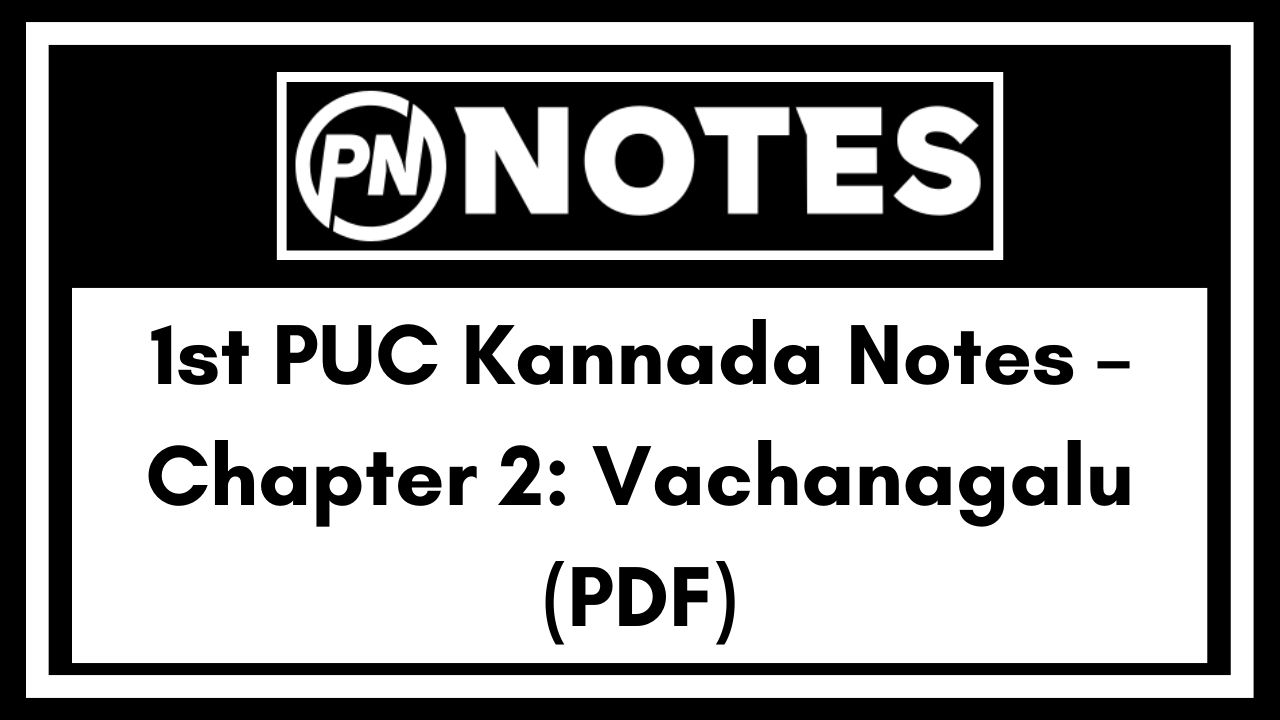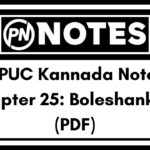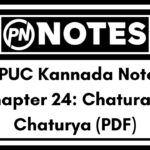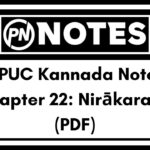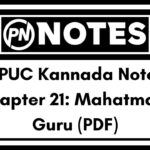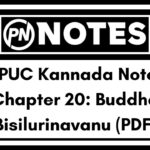Welcome to a different useful information on 1st PUC Kannada Notes. On this submit, we’re specializing in Chapter 2: Vachanagalu, a big chapter that introduces college students to the world of Vachana literature — a strong type of religious and social expression in Kannada.
This chapter consists of chosen vachanas (poetic-prose expressions) written by nice Sharanas like Basavanna, Allama Prabhu, Akka Mahadevi, and others. These vachanas carry deep philosophical meanings and are a part of Karnataka’s wealthy literary and religious heritage.
What Are Vachanagalu?
“Vachana” means speech or saying, however in Kannada literature, it refers to a singular literary type developed through the twelfth century by the Virashaiva movement. Vachanagalu are easy, but profound expressions of fact, devotion (bhakti), and social consciousness.
They had been written to oppose blind rituals, caste discrimination, and promote internal purity, fact, and devotion to God — particularly Lord Shiva (Sharanas worshipped him as Shiva or Ishtalinga).
Key Features of Vachanagalu
Right here’s what makes vachanas particular:
- Written in easy Kannada in order that widespread individuals may perceive them.
- Emphasis on fact, devotion, and ethical values.
- Criticism of rituals, caste system, and false spirituality.
- Deal with private expertise with the divine.
Poets Featured in Chapter 2: Vachanagalu
Listed here are a few of the essential vachana writers you’ll research on this chapter:
1. Basavanna
- Recognized for his deep devotion to work and God.
- Believed in Kayakave Kailasa (Work is Worship).
- Opposed caste and temple rituals.
Instance line:
“Kayakave Kailasa” – Which means one can attain God by way of sincere work.
2. Allama Prabhu
- Targeted on religious realization and inner worship.
- Inspired self-inquiry over blind custom.
3. Akka Mahadevi
- Image of female religious energy.
- Gave up worldly life for union with Chennamallikarjuna (a form of Shiva).
- Her vachanas mirror intense devotion and detachment.
Moral & Social Messages in Vachanagalu
- True devotion is inner, not exterior.
- Nobody is excessive or low by start.
- Work actually and dwell in truth.
- God is past temple partitions and rituals.
Why This Chapter Matters
This chapter helps college students:
- Perceive the roots of social reform in Kannada literature.
- Admire religious poetry in easy language.
- Learn the way poets used phrases as instruments of change.
- Put together successfully for exams with clear, impactful quotes and values.
These 1st PUC Kannada Notes for Chapter 2 make it simple to recollect key traces, meanings, and messages.
Final Thoughts
The vachanas are greater than poems — they’re life lessons. By studying them, college students not solely rating effectively in exams but additionally perceive the cultural and religious depth of Kannada literature. Preserve revising with these 1st PUC Kannada Notes and acquire confidence in your preparation.
More Resources:-
